| Amazon Lightsail
Lightsail is an easy-to-use virtual private server that offers everything which is needed to build a cost-effective website with a monthly plan. This approach is suitable for prototyping and test environments as well for blogs, custom sites, and e-commerce applications. In this blog, you can explore everything about Amazon Lightsail including a business scenario to spin up a WordPress site quickly with a customized look and feel, least configuration efforts, and minimal costs.
| Lightsail instance
Lightsail instance is a virtual private server (VPS) that lives in the AWS Cloud. Use your Lightsail instances to store your data, run
your code, and build web-based applications or websites. Your instances can connect to other AWS resources through both public (Internet) and private (VPC) networking. You can create, manage, and connect easily to instances right from the Lightsail console.
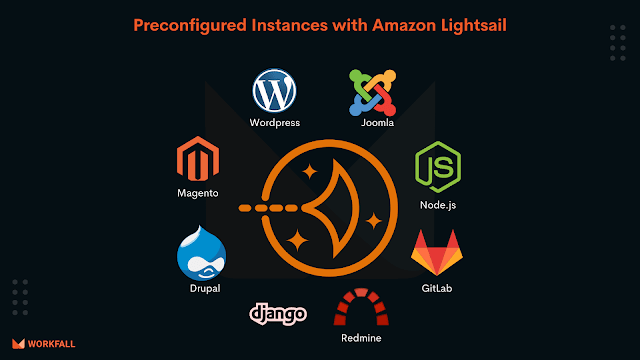
Prerequisites
You need to have an AWS account and some basic knowledge of working with AWS services. Following AWS services will be utilized throughout this guide.
Amazon Lightsail
Wordpress
Amazon S3
Elastic Load Balancer
*| Wordpress Website in Lightsail
*

Figure 1: Wordpress instance
In the Above Figure, two Wordpress instances are there with the configuration like 512MB,1vCPU etc. Also created two Static IP
and attached with each instance.
Figure 2 : Load Balancer
The load balancer is configured in the same region in which two Wordpress instances are launched. After that, both instances are attached to the load balancer under Target Instance. The load balancer will give one DNS name by which you can access the website and response will come from any of the Wordpress instances.
Figure 3: Website
This is the Homepage of the website where the default hello world page is already given. All the recent posts will be shown on the menu and by clicking it you can open that particular blog.
Figure 4: Wordpress's Admin Dashboard
This is the Admin dashboard of Wordpress. From here you can configure many things like Add new pages, Menus, Add necessary plugins, change the theme of the website.
Figure 5: Website
Here's the blog of the Flutter Ebook app which is runnig on the Wordpress instance.

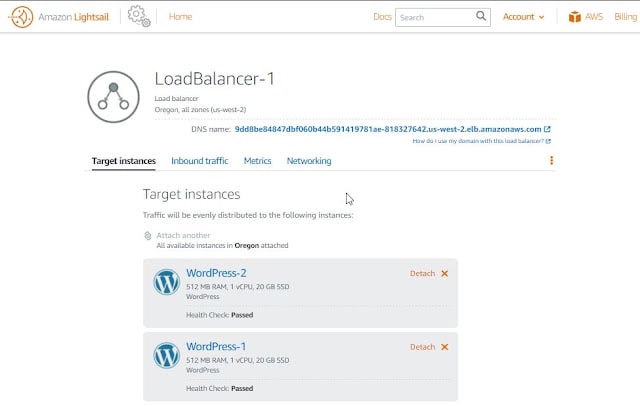
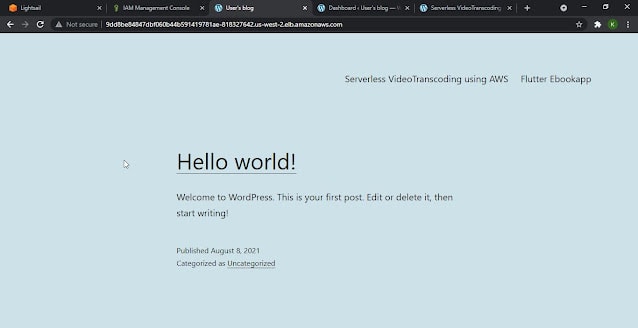
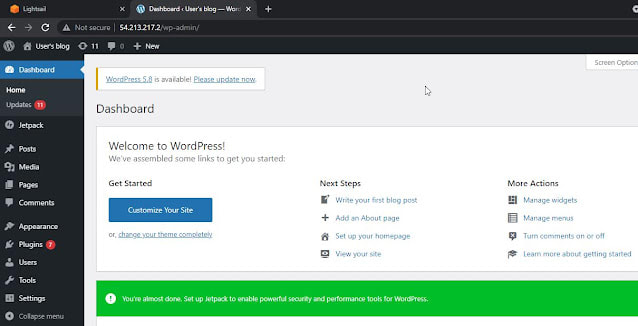
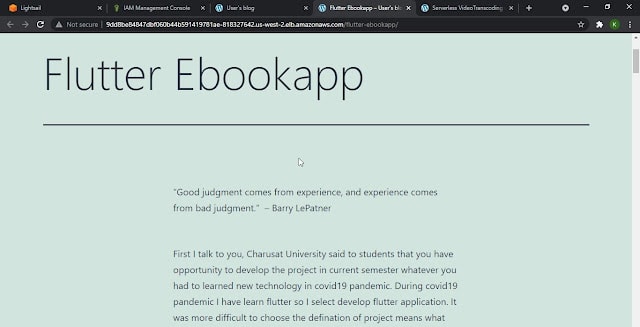

Top comments (0)